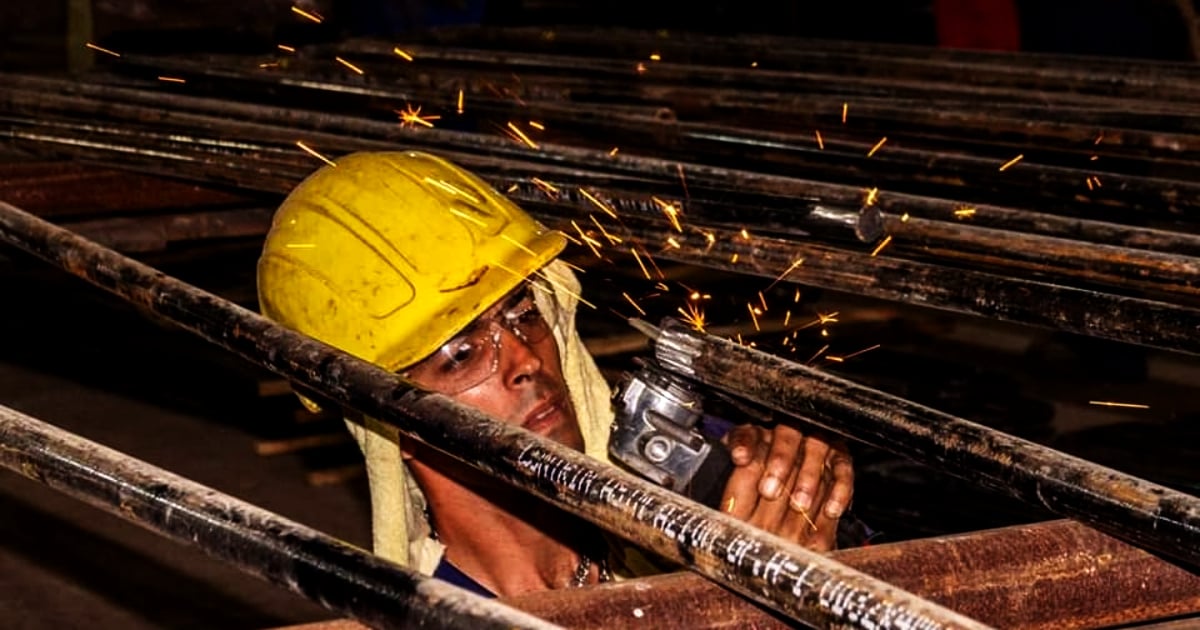The National Electric Union of Cuba (UNE) has entered September struggling to prevent the collapse of the national electrical system (SEN), resulting in widespread blackouts across the island that have exceeded 800 megawatts (MW) this Tuesday.
"We estimate a peak availability of 2,453 MW and a maximum demand of 3,240 MW, resulting in a deficit of 787 MW. If conditions persist, we forecast an impact of 857 MW during this period," UNE reported on social media.
Yesterday, the service was disrupted for 24 hours, and the impact continued throughout the early hours of today, UNE informed its customers, stating that "the maximum impact was 749 MW at 20:30 hours, not coinciding with peak hours."
The state-run company attributes the generation capacity deficit to unit breakdowns and insufficient fuel availability. This Tuesday, units 5 of the Rente Thermoelectric Plant, unit 1 of the Santa Cruz Thermoelectric Plant, and unit 2 of the Felton Thermoelectric Plant remain out of service due to malfunctions.
Apparently, the reported malfunction on Monday in unit 8 of the Mariel Thermoelectric Plant was resolved, but the deficit continues to soar above 800 MW. "Thermal generation limitations amount to 562 MW. Forty-six distributed generation plants are out of service due to fuel issues, totaling 287 MW affected in this category," UNE noted this Tuesday.
Government's Failed Strategy and Public Outcry
After admitting that the government strategy of Miguel Díaz-Canel to minimize blackouts during the summer failed, the Minister of Energy and Mines, Vicente de la O Levy, promised a slight improvement with the arrival of cooler months. However, September has begun with massive blackouts.
Neither the start of the school year nor the growing discontent among Cubans—who have taken to the streets in protest—has prompted the Cuban regime to prioritize energy generation.
The minister's promise that, thanks to investment in renewable energy, the government would generate a minute of electricity without relying on imported fuel by 2025 has not impressed Cubans, who see it as a mockery or foolishness.
"Brothers, stay calm, the competent authorities have just sent four ships to Antarctica to bring back four icebergs to advance winter in Cuba and meet the people's ever-growing demands. Patience, it's just a matter of waiting," a user bitterly joked on Tuesday in the comments on UNE's post.
"One question: Which plant supplies electricity to the Cuban elite and their families? Because it never appears out of service due to fuel issues. If, according to the constitution they invented, all Cubans have the same rights as Raúl and his family, the general staff, Canel, Marrero, and all the others... then they have the right to 24 hours of blackouts at least," another user commented.
"We have to keep enduring the distortions of decision-makers. Many hotels in exchange for little electricity. How long will this continue?" one asked. "The days go by... and instead of improving... everything gets worse. Where are they taking us?" another user inquired.
"It's impossible to think they can't improve this deplorable situation. The deficit has consistently been above 700 and 800 MW every day. We really can't take it anymore... too much sustained pressure over time," another frustrated Cuban vented.
"The country of eternal darkness. But the worst part is that the rulers do nothing to improve the situation. They are in power to live well, all of them and their families," concluded a Facebook user tired of the government's deceit under the so-called "continuity."
Understanding Cuba's Power Outage Crisis
To help our readers understand the current power outage crisis in Cuba, we've compiled some frequently asked questions and answers.
What is causing the power outages in Cuba?
The power outages are primarily caused by breakdowns in key power generation units and insufficient fuel availability.
How much is the current power deficit in Cuba?
As of the latest reports, the power deficit in Cuba has exceeded 800 MW.
What measures has the Cuban government taken to address the power crisis?
The government has promised investment in renewable energy and slight improvements with cooler weather, but these measures have not yet yielded significant results.
How are Cubans reacting to the power outages?
Many Cubans are frustrated and have even taken to the streets to protest. There is widespread discontent over the government's inability to resolve the crisis.
